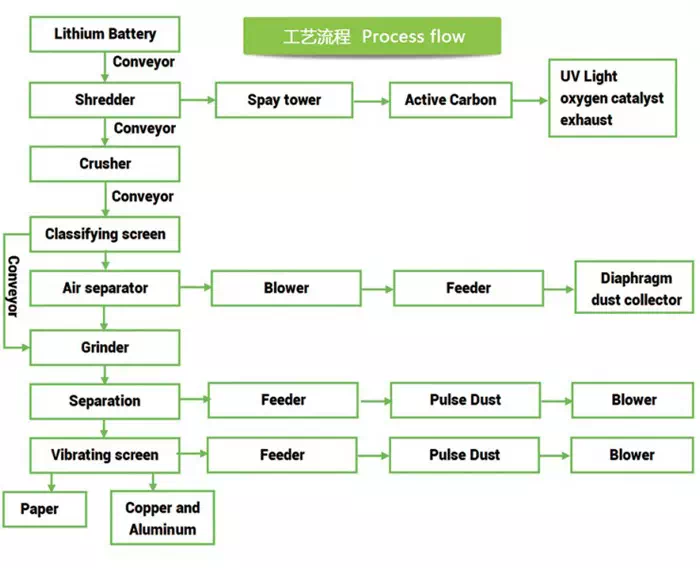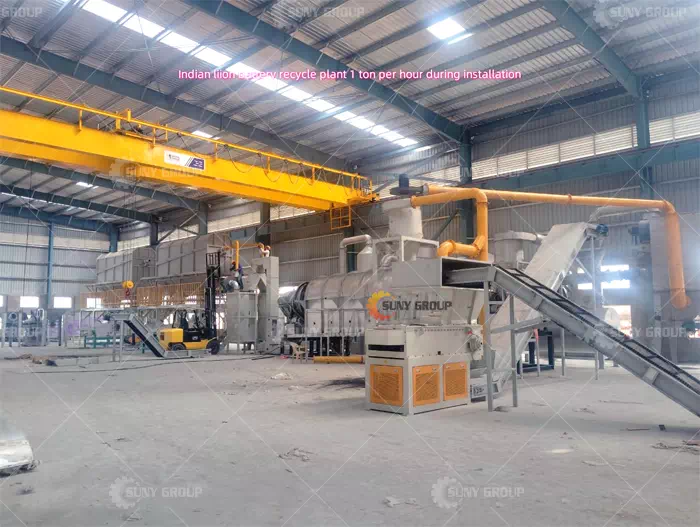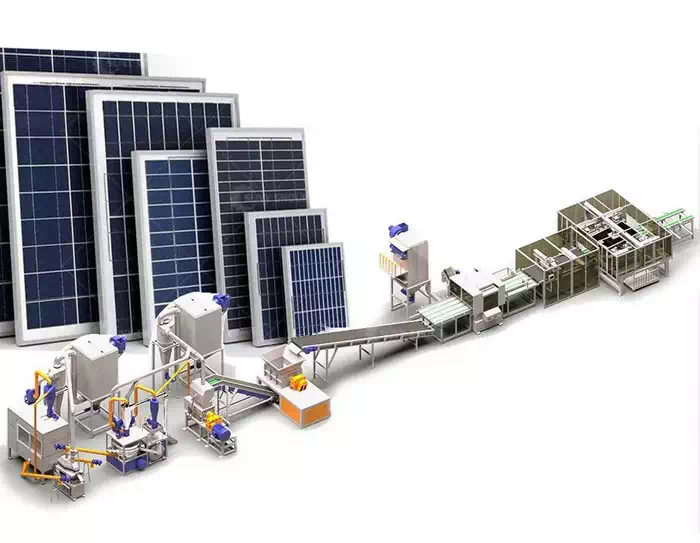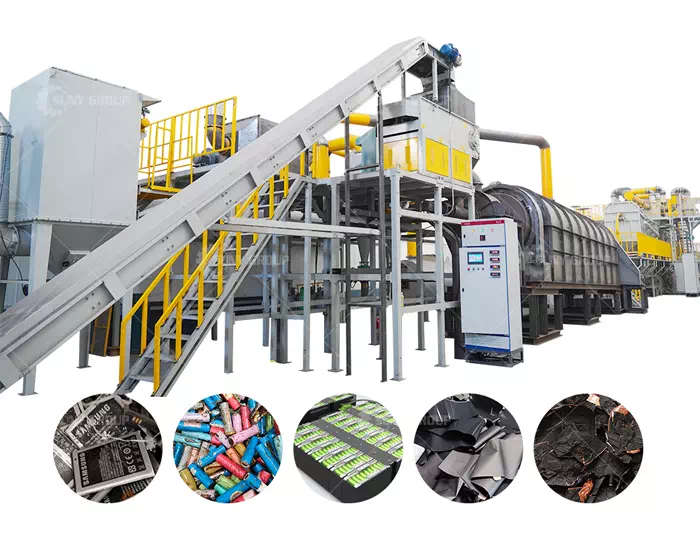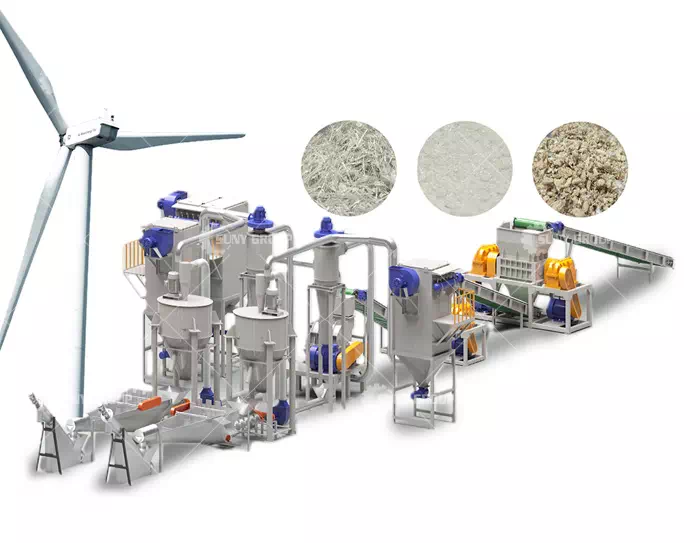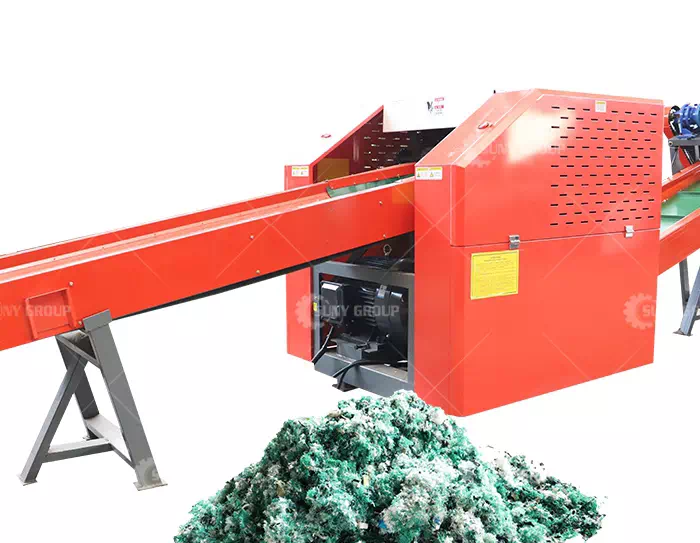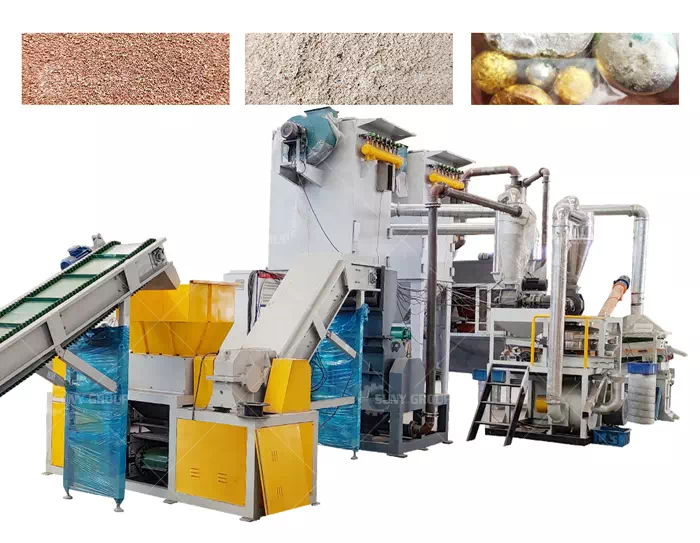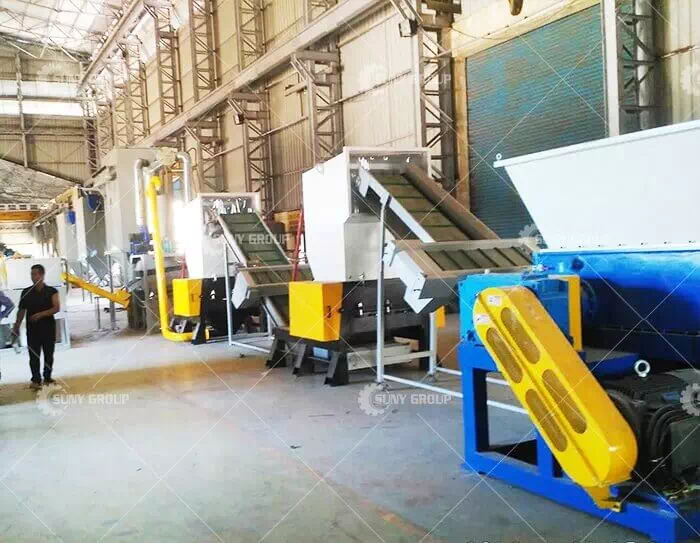Lithium-ion Battery Recycling Plant Cost in India
With the rapid development of the electric vehicle (EV) market and energy storage industry in India, the use of lithium-ion batteries continues to climb, and the ensuing battery recycling problem has gradually emerged. Used batteries contain many valuable metals, such as cobalt, nickel, lithium, etc., if not properly handled, not only cause pollution to the environment, but also a waste of reusable resources. Under the multiple driving forces of policy support, environmental protection pressure, and resource recycling, the establishment of a lithium-ion battery recycling plant has become a promising investment choice.
Lithium Battery Recycling Process
A standard lithium-ion battery recycling plant usually contains several system modules, starting with pre-processing equipment, which is mainly used for battery discharging and preliminary dismantling operations to ensure the safety and high efficiency of subsequent processing. The discharger can quickly reduce the voltage of used batteries to a safe level, while the dismantling table facilitates manual or semi-automatic stripping of the battery shell. This is followed by crushing and sorting, where a low-temperature crusher or nitrogen-protected crusher is used to prevent thermal runaway of the battery. The crushed mixture is efficiently separated from metals and non-metals by airflow sorting and eddy current sorting systems, while the supporting dust collection and exhaust gas treatment equipment ensures that the entire process meets environmental standards.
The third part is a hydrometallurgical or thermal treatment system for extracting valuable metal components from the battery powder. The leaching reactor and chemical extraction device separate the target elements such as lithium, cobalt, and nickel by chemical means, and then further refined by drying furnace and smelting furnace to produce reusable metal compounds or alloy materials. In addition, automated control systems (e.g., PLC), safety monitoring systems, and complete sets of conveying equipment are required to enhance production efficiency and ensure operational safety. The selection and size of these systems directly determine the initial investment, usually a small and medium-sized plant equipment costs between 3 million and 8 million rupees, while large production lines may be up to tens of millions of rupees.
Indian Lithium-ion Battery Recycling Plant 1 Ton Per Hour Site
From the perspective of return on investment, the core value of lithium battery recycling lies in the reuse of metal resources, and its products have a stable market demand. Especially after establishing cooperative relationships with electric vehicle manufacturers or battery manufacturers, it can obtain a stable supply of raw materials and sales channels. Combined with local policy subsidies and environmental regulations, it is recommended to start with a medium-sized factory, prioritize investment in core equipment, gradually improve auxiliary systems, and seek technology partners with mature processes. At the same time, actively seeking government support in land, environmental certification, and funding will help control upfront costs and enhance project feasibility. If you need or want to know more details about the price, please feel free to contact us.
Recommend products
CONTACT US:
If you have any requirement or suggestion, please fill in the form and send to us, thanks!E-mail:sunymachine@gmail.com | Whatsapp:+8613674945231


